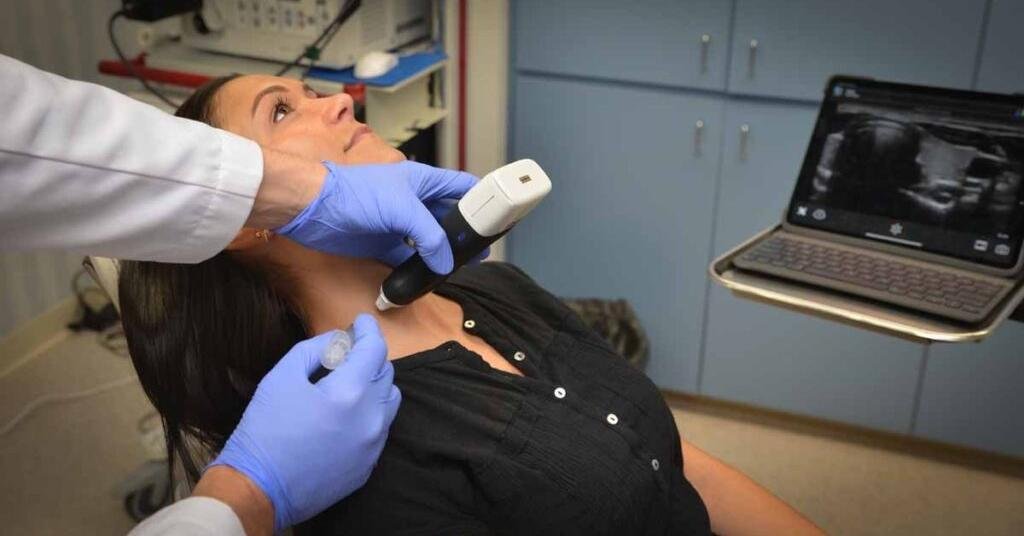Are you curious to know what is FNAC test? You have come to the right place as I am going to tell you everything about FNAC test in a very simple explanation. Without further discussion let’s begin to know what is FNAC test?
In the realm of medical diagnostics, precision and accuracy are paramount. Fine Needle Aspiration Cytology (FNAC) is a diagnostic test that plays a crucial role in identifying and characterizing various medical conditions, particularly in the field of oncology. In this blog, we will explore what the FNAC test is, how it works, and its significance in the diagnosis and treatment of medical conditions.
What Is FNAC Test?
Fine Needle Aspiration Cytology (FNAC) is a medical procedure used to obtain tissue samples from various parts of the body for diagnostic evaluation. It is a minimally invasive technique that involves using a thin, hollow needle to extract cellular material from a suspicious or affected area, such as a lump or mass.
Key Aspects Of The FNAC Test:
- Sample Collection: During the FNAC procedure, a trained medical professional inserts a fine needle into the target area, such as a tumor or swollen lymph node, to aspirate (draw out) cellular material. The procedure is often performed under local anesthesia.
- Sample Preparation: The extracted cellular material is then placed on a glass slide or in a fixative solution to preserve the cells for analysis.
- Cytological Examination: A pathologist or cytologist examines the collected cells under a microscope to assess their morphology (shape and structure). They also look for any abnormal or cancerous cells.
- Diagnosis: Based on the cytological examination, the pathologist provides a diagnosis, which may indicate whether the sample is benign (non-cancerous), malignant (cancerous), or inconclusive.
- Guidance for Further Tests: The FNAC results can guide healthcare providers in determining the need for additional tests or procedures, such as biopsies or imaging studies, to further evaluate the condition.
Significance Of The FNAC Test
- Early Diagnosis: FNAC is a valuable tool for the early diagnosis of various medical conditions, including cancer. Detecting cancer in its early stages can significantly improve treatment outcomes.
- Minimally Invasive: FNAC is a minimally invasive procedure that causes minimal discomfort and has a lower risk of complications compared to surgical biopsies.
- Site Selection: FNAC allows healthcare providers to target specific sites of concern, such as suspicious lumps or enlarged lymph nodes, for diagnostic evaluation.
- Treatment Planning: The FNAC results guide healthcare providers in planning appropriate treatment strategies, whether it involves surgery, radiation therapy, chemotherapy, or other interventions.
- Monitoring Response to Treatment: FNAC can also be used to assess the response of tumors or lesions to treatment, helping to tailor ongoing therapy.
- Rapid Results: FNAC provides relatively quick results, allowing for timely decision-making and treatment planning.
Applications Of The FNAC Test
The FNAC test is utilized in a wide range of medical applications, including:
- Oncology: FNAC is commonly used to diagnose various types of cancer, such as breast cancer, thyroid cancer, and lung cancer.
- Infectious Diseases: It can help diagnose certain infectious diseases, including tuberculosis and fungal infections.
- Autoimmune Disorders: FNAC may be employed to evaluate lesions or masses associated with autoimmune diseases.
- Thyroid Conditions: FNAC is valuable in assessing thyroid nodules and determining whether they are benign or malignant.
- Salivary Gland Disorders: It aids in the evaluation of salivary gland disorders and the detection of salivary gland tumors.
Conclusion
Fine Needle Aspiration Cytology (FNAC) is a powerful diagnostic tool in the field of medicine, offering a minimally invasive means of obtaining tissue samples for cytological examination. Its ability to provide rapid and accurate diagnostic information makes it an invaluable asset in the early detection and management of various medical conditions, especially cancer. FNAC not only helps healthcare providers diagnose diseases but also plays a crucial role in guiding treatment decisions and improving patient outcomes.
On GetDailyBuzz you will get to know beneficial information which required in your daily life.
FAQ
What Does FNAC Test Detect?
Fine needle aspiration cytology (FNAC) of the lymph node is a simple diagnostic tool to diagnose suspected and unsuspected secondary and primary lymph node malignancy.
Is FNAC A Biopsy?
The sampling and biopsy considered together are called fine-needle aspiration biopsy (FNAB) or fine-needle aspiration cytology (FNAC) (the latter to emphasize that any aspiration biopsy involves cytopathology, not histopathology). Fine-needle aspiration biopsies are very safe minor surgical procedures.
What Are The Reasons For FNAC?
FNAC is an easy and suitable tool for the assessment of patients with neck swellings in the outpatient clinics. Although its diagnostic accuracy is limited as compared to tissue biopsy but it is a good test for both screening and follow-up.
Is FNAC Positive Or Negative?
Positive FNAC will mean cases in which FNAC was able to detect correctly the final histologic diagnosis while negative FNAC are those where final histologic diagnosis were at variance with initial FNAC diagnosis.
I Have Covered All The Following Queries And Topics In The Above Article
What Is FNAC Test Used For
FNAC Test Price
FNAC Test Positive Means
FNAC Test Normal Report
FNAC Test Report
FNAC Test Negative Means
FNAC Test For Neck
What Is FNAC Test For Breast
What Is FNAC Test
What is Fnac test?

